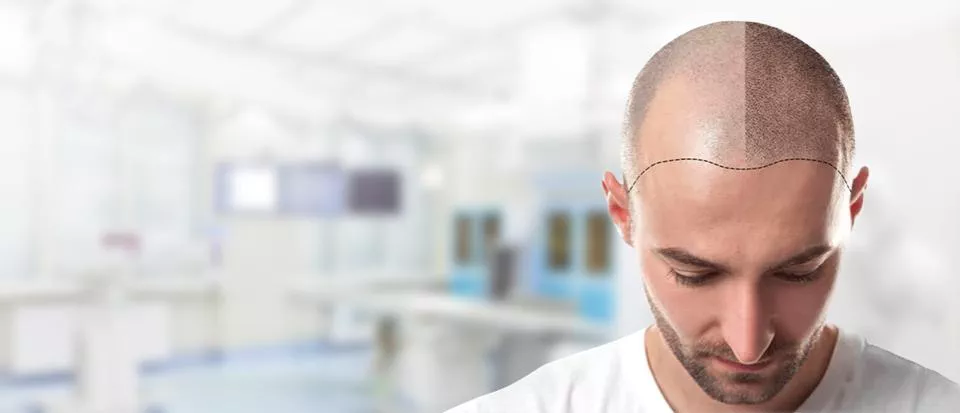After undergoing a hair transplantation, it is important to pay attention to nutrition in order to support the healing process and ensure the success of the procedure. Nutrition plays a crucial role in promoting hair growth and maintaining overall health, so it is important to make the right food choices to support the newly transplanted hair follicles. In this blog, we will discuss the nutrition details that are important to consider after a hair transplantation procedure.
Essential Nutrients for Enhancing Hair Growth

When it comes to promoting healthy hair growth, essential nutrients play a crucial role. Incorporating the following essential nutrients into your diet can help enhance your hair growth and overall hair health:
- Protein: Protein is the building block of hair, so make sure to include plenty of lean meats, fish, eggs, and dairy in your diet.
- Biotin: Biotin, also known as vitamin H, promotes hair growth and can be found in foods like nuts, sweet potatoes, and eggs.
- Vitamin E: This powerful antioxidant helps improve scalp circulation and can be found in foods like almonds, spinach, and sunflower seeds.
- Vitamin A: Vitamin A helps produce healthy sebum, an oily substance that keeps the scalp moisturized. Include carrots, sweet potatoes, and kale in your diet for a good source of vitamin A.
- Iron: Iron helps carry oxygen to the hair follicles, and a deficiency in iron can lead to hair loss. Incorporate iron-rich foods like red meat, lentils, and spinach into your meals.
Conclusion
By ensuring that your diet includes these essential nutrients, you can support healthy hair growth and improve the overall condition of your hair.
The Role of Diet in Supporting Follicular Health After Hair Transplantation

After undergoing a hair transplantation procedure, it is crucial to provide adequate support for the newly transplanted follicles to ensure successful growth and development. One key aspect of this support is through a well-balanced diet that promotes follicular health. Research has shown that certain nutrients and dietary factors play a significant role in enhancing the health and vitality of hair follicles, ultimately leading to improved outcomes post-transplantation.
Key Nutrients for Follicular Health
Several nutrients are essential for promoting follicular health, including protein, iron, and vitamins such as A, C, and E. Protein is the building block of hair, and its adequate intake is crucial for the growth and strength of follicles. Iron deficiency can lead to hair loss, making it important to include iron-rich foods in the diet. Likewise, vitamins A, C, and E are known for their role in supporting hair health and should be consumed regularly.
Healthy Diet Recommendations
It is recommended to include a variety of nutrient-rich foods in the diet to support follicular health. This can include lean sources of protein such as chicken, fish, and beans, as well as iron-rich foods like spinach, lentils, and red meat. Additionally, incorporating a range of fruits and vegetables that are high in vitamins A, C, and E can further support follicular health.
| Nutrient | Food Sources |
|---|---|
| Protein | Chicken, fish, beans |
| Iron | Spinach, lentils, red meat |
| Vitamins A, C, E | Carrots, oranges, almonds |
Overall, a well-rounded and diverse diet that incorporates these key nutrients can significantly contribute to the support of follicular health after a hair transplantation procedure. By focusing on dietary choices that promote hair growth and vitality, individuals can maximize the success of their transplantation and achieve optimal results.
Optimizing Your Hair Transplant Results: A Guide to Post-Surgical Nutrition
After undergoing a hair transplant, it is crucial to focus on post-surgical nutrition to optimize your results. Protein intake is essential for hair growth, so be sure to incorporate lean meats, fish, and legumes into your diet. Additionally, vitamin-rich foods such as fruits and vegetables can promote healing and nourish the scalp. Hydration is also key, so drink plenty of water to support hair health.
Protein is Key
Protein is the building block of hair, so after a hair transplant, ensure you are consuming enough protein to support new hair growth. Lean meats such as chicken and turkey, as well as fish and vegetarian sources like lentils and beans, are all excellent choices for post-surgical nutrition.
Key Vitamins and Minerals to Promote Healing After Hair Transplant

Undergoing a hair transplant is a big decision, and proper healing is essential for successful results. In addition to following your doctor’s post-operative instructions, incorporating certain vitamins and minerals into your diet can help promote healing and encourage hair growth. Here are some key nutrients to focus on:
Vitamin C
Vitamin C is essential for collagen production, which is important for wound healing. It also helps to protect the body from oxidative stress, which can hinder the healing process.
Vitamin E
As a powerful antioxidant, vitamin E can help reduce inflammation and promote healing. It also aids in improving blood circulation to the scalp, which is important for promoting hair growth.
Zinc
Zinc is an important mineral for tissue repair and can help support the immune system. It also plays a role in DNA and protein synthesis, which is crucial for healthy hair follicles.
Iron
Iron deficiency can contribute to hair loss, so ensuring adequate intake of iron-rich foods or supplements is critical for post-transplant healing and hair growth.
Biotin
Biotin, also known as vitamin B7, is essential for the production of keratin, a protein that makes up the structure of hair. It can help strengthen the hair and promote overall scalp health.
By incorporating these key vitamins and minerals into your diet, you can support the healing process after a hair transplant and contribute to the success of the procedure.
| Nutrient | Benefits | Sources |
|---|---|---|
| Vitamin C | Collagen production, antioxidant | Citrus fruits, bell peppers, strawberries |
| Vitamin E | Antioxidant, anti-inflammatory | Almonds, spinach, sunflower seeds |
| Zinc | Tissue repair, immune support | Red meat, poultry, nuts, seeds |
| Iron | Prevention of hair loss, tissue repair | Red meat, lentils, spinach |
| Biotin | Keratin production, scalp health | Eggs, nuts, whole grains |
Tailoring Your Meal Plan for Maximum Recovery After Hair Restoration Surgery
After undergoing hair restoration surgery, it’s crucial to tailor your meal plan to support a speedy and successful recovery. Nutrient-rich foods such as leafy greens, lean proteins, and fruits are essential for promoting hair growth and overall healing. Additionally, hydration is key, so be sure to drink plenty of water and avoid dehydrating beverages like alcohol and caffeine. Lastly, staying consistent with your meal plan and avoiding processed foods will aid in optimal recovery after surgery.
Protein Intake and Hair Regeneration
Protein intake plays a crucial role in hair regeneration and growth. Hair follicles are made up of mostly protein, and a diet lacking in protein can lead to weakened or brittle hair. According to experts, the recommended daily intake of protein for hair health is around 45 grams for the average adult.
Studies have shown that increasing protein intake can improve hair density and diameter, leading to thicker and healthier-looking hair. Additionally, consuming iron, zinc, and vitamin A along with protein can further promote hair regeneration.
According to dermatologist Dr. Jessica Wu, “Protein is essential for hair health, as it is the building block of hair. A lack of protein in the diet can lead to hair thinning and loss.”
The Role of Protein-Rich Foods
Protein-rich foods such as eggs, lean meats, fish, and legumes can significantly contribute to hair regeneration. Including these foods in your diet can enhance the quality and strength of your hair, preventing issues such as breakage and hair loss.
| Food Source | Protein Content (per 100g) |
|---|---|
| Eggs | 13g |
| Chicken Breast | 31g |
| Salmon | 25g |
| Lentils | 9g |
Frequently Asked Questions
What is a balanced diet?
A balanced diet is one that contains a variety of different types of food in appropriate proportions, providing the nutrients that are necessary for good health.
How can I improve my eating habits?
You can improve your eating habits by incorporating more fruits, vegetables, whole grains, and lean proteins into your diet, while reducing the intake of processed and high-sugar foods.
What are essential nutrients?
Essential nutrients are compounds that the body cannot make on its own, so they must be obtained from the diet. These include vitamins, minerals, essential fatty acids, and essential amino acids.
What is the importance of hydration?
Hydration is important for maintaining bodily functions, regulating body temperature, and supporting overall health. It is recommended to drink plenty of water throughout the day to stay properly hydrated.
How can I read food labels effectively?
To read food labels effectively, pay attention to serving sizes, the amount of nutrients and ingredients, and look for products with lower amounts of saturated fats, added sugars, and sodium.
